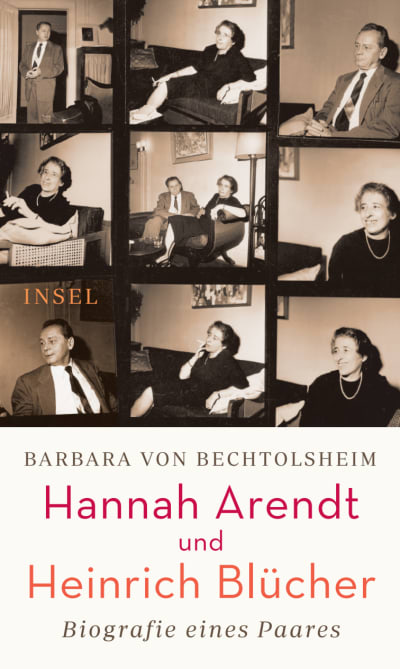Hannah Arendt and Heinrich Blücher
Hannah Arendt, a highly acclaimed philosophical author, and Heinrich Blücher, a man with revolutionary ambitions, met in Paris in 1936 as political outcasts, she because of her Jewishness and he on the grounds of his previous involvement with socialism and communism. While Arendt had been raised in Königsberg in a Jewish family of high standards, in which political optimism and German literary culture were a given, Blücher grew up in a working-class environment in Kreuzberg....
Hannah Arendt, a highly acclaimed philosophical author, and Heinrich Blücher, a man with revolutionary ambitions, met in Paris in 1936 as political outcasts, she because of her Jewishness and he on the grounds of his previous involvement with socialism and communism. While Arendt had been raised in Königsberg in a Jewish family of high standards, in which political optimism and German literary culture were a given, Blücher grew up in a working-class environment in Kreuzberg. They got married in 1940 and emigrated to the United States. Both Arendt and Blücher appreciated the political freedom they found in their new home country and became involved in America’s academia, determined to make a difference after the Holocaust. During the three decades of their marriage which ended with Blücher’s death in 1970, they contributed to their respective worlds – the highest ranks of academia and the liberated bohemian college life. Their political thinking was based on their own experiences as refugees and immigrants which they overcame in the most amazing ways: Arendt promoted the idea of individual freedom as a human right through her controversial writings and lectures, while Blücher supported young academics and taught them to become independent individuals through his Socratic teaching style. Together they challenged cultural and intellectual structures in their academic milieus.
This intellectual biography explores the shared life of two very different partners who inspired each other’s philosophical thinking and political and social involvement. Arendt’s central works would be inconceivable without Blücher’s influence and vice versa – Barbara von Bechtolsheim gives a deeper insight into their philosophical relationship by looking at Blücher’s letters and recently published essays, his previously unpublished lectures, which are only available as audio documents and transcripts, and interviews with former colleagues and students.
This work provides a better understanding of the energy and courage of scholars and artists in exile who enriched the cultural life in post-World War II New England. With their skills of self-reflection, relationship and friendship, social justice and social change, the creative couple Arendt-Blücher continues to inspire intellectuals on both sides of the Atlantic to this day.
Persons
Barbara von Bechtolsheim
OTHER PUBLICATIONS

